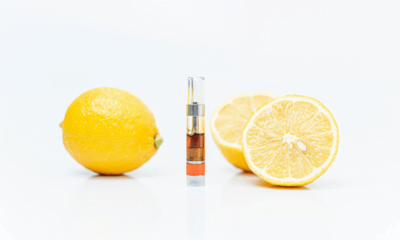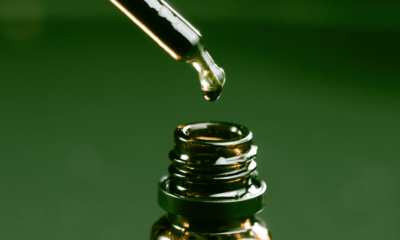From the best modes of administration, to how long to wait until taking a drink – how can you ensure you’re getting the most out of your CBD products?
Many people wonder whether CBD is worth the purchase.
Even though it may not have an instant life-changing impact, with the studies and research to date, there is a growing body of evidence on the health benefits of CBD.
CBD is a naturally occurring chemical compound found in the cannabis plant. Short for Cannabidiol, it is a non-addictive and non-psychoactive substance. CBD oil tinctures are a tasty delivery method for taking this product.
CBD oil has been around for a while and was first extracted in 1942 by a Harvard-trained chemist. Since CBD is a relatively new discovery, there are still plenty of user-generated questions on the best way to take it.
Whether you should drink water after taking CBD oil is one question that people are asking. In general, there is no harm in taking CBD oil with water.
Forms of CBD
You can take CBD in pretty much any form that you want. More popular consumption methods include gummies, tinctures, topicals, joints, and CBD oils. Today, interest in CBD is growing. This excitement is leading to an explosion of new CBD products.
CBD products include pills, vape CBD, brownies, cookies, and topical balms. They include everything from confectionaries to skincare. One popular item includes the CBD sublingual spray, which requires you to spray the CBD oil in your mouth for fast absorption into the bloodstream.
This method is similar to CBD oil, in which you place CBD oil drops underneath your tongue. Each different brand will introduce different products with their suggested dosage.
Water and CBD
When consuming CBD oil with water, there are many differing opinions.
If you use a CBD vape or use the CBD oil orally or topically, you can easily consume water afterward without worrying about absorption in the digestive system.
On the other hand, if you choose to consume CBD oil through a tincture with the process of sublingual consumption, then you should wait at least a minute or 30 seconds before you drink water.
Underneath your tongue, there are tissues known as the mucous membrane. These membranes consist of blood vessels in large numbers that can absorb compounds and molecules quickly into the bloodstream without any problem.
We spoke with Carmel Monti, CEO of TN Farmaceuticals, A CBD oil producer in Tennessee. He said “There is no consistent wisdom on taking drinks before, after or [when] taking CBD. If anything, I would tell people to let the tincture settle in their mouth for as long as possible to enable it to absorb best. Therefore, drinking something right after or during taking it, would, I believe, diminish the effectiveness of the product.”
Sublingual consumption
If you are taking CBD oil by swallowing it, the compound will have to travel through the entire length of the digestive tract, and digestion can take 30 minutes or two hours. On the other hand, taking CBD oil through sublingual consumption can help absorption complete in just a matter of seconds.
Moreover, it is important to realise that over 60 per cent of the human body is made up of water. This underscores how critical hydration is for optimal health. Therefore, even if you should refrain from drinking water after consuming sublingually, it is best to stay hydrated as it eases most of the absorption processes inside your body.
For this reason, it is best to rinse your mouth before CBD is consumed sublingually. A CBD tincture will work well on both an empty stomach and a full one. However, before you start taking CBD oil on an empty stomach, keep in mind that some foods have proven to increase the bioavailability of CBD inside the stomach.
CBD is a fat-soluble molecule, which means it is compatible with some compounds instead of others. Other fats, which include coconut oil, olive oil, and more, can assist in the absorption of CBD oil. Nonetheless, another factor to take into consideration is the CBD oil type.
Read more: Could CBD help us live longer?
Types of hemp CBD oil drops
You can find three primary types when looking for CBD oil. Full-spectrum CBD oil, broad-spectrum oil, and pure CBD oil or a CBD isolate.
A cannabis plant does have not only CBD as a compound but also a range of other chemicals embedded in its structure. For instance, one counterpart cannabinoid is THC, which is the plant’s psychoactive ingredient. Many consumers enjoy THC as a recreational substance.
Along with THC, the plant also has other compounds, cannabinoids, and terpenes that give its flower a unique flavour profile and fragrant characteristics.
These additional ingredients are important to differentiate between the different types of oils commonly sold. The difference is mainly in the extraction process and which elements of the hemp are retained in the final product.
Full spectrum
A full-spectrum CBD oil contains all of the compounds of a cannabis plant. In this oil, you not only get to experience CBD but also a tiny percentage of THC, alongside the terpenes. Many experts believe that this is the best way to consume CBD oil.
Broad spectrum
Broad-spectrum oil is for consumers that do not want any psychoactive substance such as THC entering their body. For this reason, this type of oil is free of THC but contains all other compounds inside the cannabis plant.
Isolate
An isolate is for the purist. This exact extraction does not contain any other cannabinoids or compounds inside the cannabis plant except for CBD. Therefore, using this product only gives you the taste of pure CBD oil.
Final thoughts
As you can see, there is generally no harm in drinking water after taking CBD oil. But at the same time, waiting a few minutes between taking your CBD and drinking water may help.
Today, CBD faces more regulatory compliance. While many government officials are starting to ease their policies surrounding CBD, they are simultaneously increasing their scrutiny on the purity of the offered products.


 Industry6 months ago
Industry6 months ago
 News6 months ago
News6 months ago
 News5 months ago
News5 months ago
 News6 months ago
News6 months ago
 Science4 months ago
Science4 months ago
 Industry5 months ago
Industry5 months ago
 News5 months ago
News5 months ago
 Patients6 months ago
Patients6 months ago













